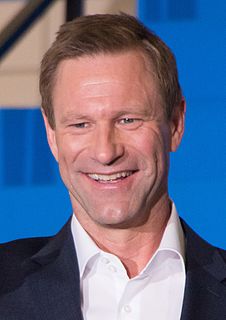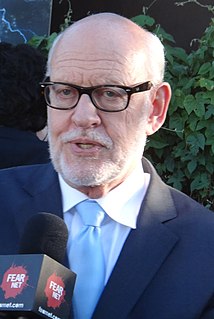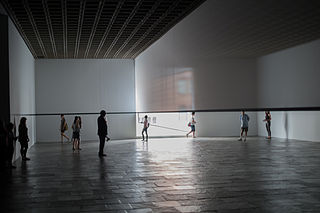A Quote by Alan Cumming
Actors aren't stupid, mostly, and if there's a sensibility and an aesthetic that a director's going for, if you're aware of that too, you can do things to help that.
Related Quotes
To go into more specifics regarding actors, whether they're from Korea or the U.S., all actors know if they are loved by the director. When they feel that love from the director, they respond by giving a great performance on camera. Also, everyone on set - the crew, the actors - they were aware of the film's message and its broad theme, so these big issues were never discussed on set.
I think that what's important as a director is to give your actors the feeling that they're protected, the feeling of confidence, the feeling that if they make mistakes, then as a director, you'll know how to help them. If you're able to convey that, then the actors will give you wonderful performances. As well as the author, you have to write scenes that give the actors the opportunity to show what they're capable of.
I know what its like to direct. You become a more considerate actor. After you have directed, you understand what is going on. You can't help but think of the material as a director. You do come up with suggestions. You come up with shortcuts that you weren't aware of before. You try to be helpful to the director if he has a lot on his hands.
I think one of the things you have to be aware of as an actor is that if you come on the set and see the director standing there mouthing all the words while a scene is going on, that's usually a very bad sign because it means the director has already shot the scene in his head. He knows exactly the rhythm and the nuances that he wants delivered in the line and you're not going to dissuade him.
I learned a lot from Clint [Eastwood], who's an extremely economic director. I learned a lot from Michael Winterbottom, who really gave a lot of trust in the actors and allowed them to live in the space instead of trying to manipulate and make it too set and too staged. Working with [Robert] De Niro taught me a lot of being an actors' director and what that is. I've learned a lot from pretty much everybody. Hopefully I've picked up something from everybody I've worked with.
Stupid religion makes stupid beliefs, stupid leaders make stupid rules, stupid environment makes stupid health, stupid companions makes stupid behaviour, stupid movies makes stupid acts, stupid food makes stupid skin, stupid bed makes stupid sleep, stupid ideas makes stupid decisions, stupid clothes makes stupid appearance. Lets get rid of stupidity from our stupid short lives.
Actors, I think, are all the same. Both Korean actors and American actors are all very sensitive people, and they are all curious to know what the director thinks of them and how they are evaluated, and they try to satisfy the director. And they like it if you listen carefully to their opinions and accept them.
I find that kid actors are great reminders of the simplicity of acting. As you get older, you can sometimes complicate things a little more. You can become too aware of, 'Okay, this is the scene emotionally. This is where we need to be. We've got the climax coming up.' You can start to analyze it too much.




































